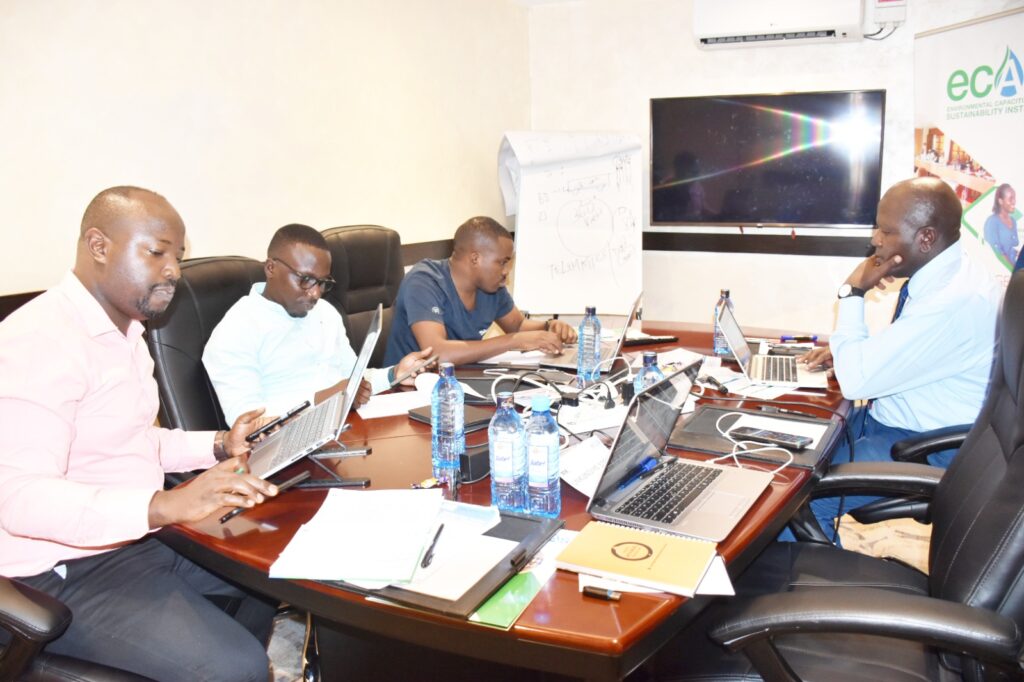
CONCEPT NOTE
INTERNATIONAL TRAINING ON GLOBAL WARMING: MITIGATION AND MODELING OF CLIMATE CHANGE
COURSE BACKGROUND
Global warming is one of the most pressing challenges of our time, driven by human activities that increase greenhouse gas (GHG) emissions and alter the Earth’s climate systems. Understanding climate change dynamics and mitigation strategies is essential for policymakers, researchers, and professionals working to reduce environmental impacts and build resilience.
This course, offered under the Environmental Capacities and Sustainability (ECAS) Institute, provides a comprehensive understanding of climate change science, mitigation strategies, and climate modeling techniques. It explores how scientific data, computational models, and policy interventions can be used to assess and reduce global warming risks. Participants will learn about climate projections, carbon reduction policies, renewable energy solutions, and adaptation strategies to contribute effectively to climate action.
Through interactive discussions, real-world case studies, and hands-on modeling exercises, this course equips participants with the analytical tools and practical knowledge to address the challenges of climate change mitigation and decision-making.
COURSE OBJECTIVES OF THE TRAINING
By the end of this course, participants will be able to:
- Understand the science behind global warming, including greenhouse gas emissions and climate feedback mechanisms.
- Examine key climate mitigation strategies, such as carbon pricing, renewable energy adoption, and energy efficiency improvements.
- Analyze climate models and projections to assess future climate scenarios.
- Explore international agreements and policy frameworks, including the Paris Agreement and the UN Sustainable Development Goals (SDGs).
- Develop skills in climate modeling and scenario analysis to support decision-making.
- Evaluate the effectiveness of different carbon reduction initiatives at local, national, and global levels.
- Understand the role of businesses, governments, and civil society in climate change mitigation.
- Learn about climate finance mechanisms that support sustainable energy and climate resilience projects.
WHAT YOU WILL LEARN
Participants will gain knowledge and skills in:
- Fundamentals of global warming, climate science, and climate change indicators.
- Climate modeling techniques and how they are used for decision-making.
- Greenhouse gas mitigation strategies across sectors (energy, transport, industry, and agriculture).
- Climate policy frameworks and international agreements.
- Carbon markets, emissions trading, and climate finance mechanisms.
- The role of technological innovation in climate mitigation (e.g., carbon capture, renewable energy).
- Case studies on successful climate mitigation projects.
- Hands-on exercises with climate modeling tools and emissions reduction planning
DURATION AND PROGRAM
TARGET PARTICIPANTS
This course is designed for climate scientists, environmental policymakers, energy professionals, sustainability officers, urban planners, and researchers working on climate mitigation and adaptation. It is also relevant for government officials, business leaders, and financial experts looking to understand the economic and technological dimensions of climate change mitigation.
Additionally, students, academics, and professionals in environmental science, engineering, policy studies, and climate finance will benefit from gaining in-depth knowledge of climate modeling, carbon reduction strategies, and sustainable policy planning.
TRAINING MODULES
| No | Module | Details | |
| 1. | Science of Global Warming and Climate Change |
|
|
| 2. | Climate Change Mitigation Strategies |
|
|
| 3. | Climate Modeling and Future Projections |
|
|
| 4. | Role of Businesses and Industries in Climate Mitigation |
|
|
|
5.
|
Climate Policy and International Agreements |
|
|
| 6. | Renewable Energy Transition and Climate Action |
|
|
| 7. | Carbon Capture and Geoengineering Technologies |
|
|
| 8. | Community-Based Climate Adaptation and Mitigation |
|
|
TRAINING STYLE
This course follows an interactive and applied learning approach, combining expert-led lectures, data-driven discussions, and practical modeling exercises. Participants will engage in climate simulations, emissions reduction scenario planning, and hands-on workshops using real-world climate data. Group discussions, policy analysis sessions, and case study reviews will enhance peer learning and critical thinking. Guest speakers from leading climate research organizations will provide insights on emerging trends in climate science and mitigation. This comprehensive training ensures that participants acquire both theoretical knowledge and practical tools to contribute effectively to global climate action efforts.
9. GENERAL NOTES
- Training manuals and additional reference materials are provided to the participants.
- Upon successful completion of this course, participants will be issued with a certificate.
- We can also do this as a tailor-made course to meet organization-wide needs. Contact us to find out more: info@ecasiafrica.org.
- Payment should be sent to our bank account before the start of training and proof of payment sent to: info@ecasiafrica.org.
ABOUT ECAS INSTITUTE
The ECAS Institute designs and delivers independent and targeted training, research, and consulting services. Our work focusses on climate change and resilience building, carbon markets, renewable energy, nature-based solution, biodiversity conservation, agriculture and food systems, We are located in Nairobi Kenya and work across the African region. We have implemented training and research assignments in Kenya, Tanzania, Uganda, South Sudan, Somalia, Malawi, Rwanda, Congo, and South Africa. Globally, we have supported our partners from the UK, Denmark, Italy, Sweden, Germany, and USA.
